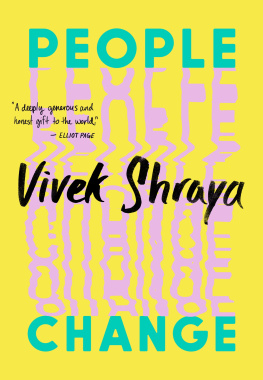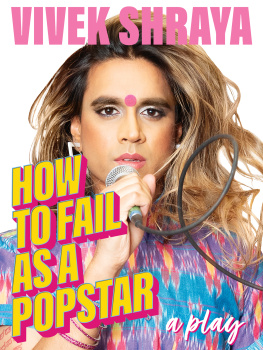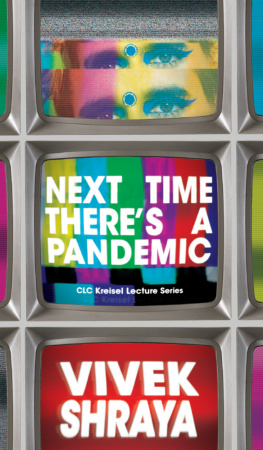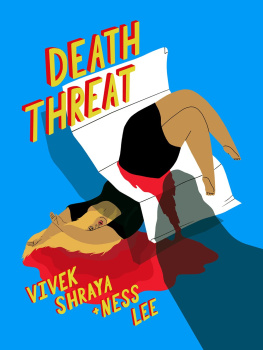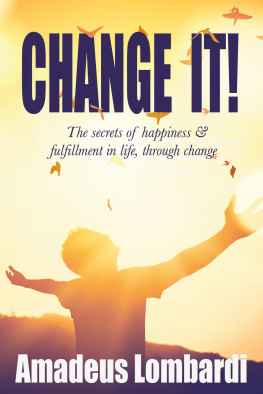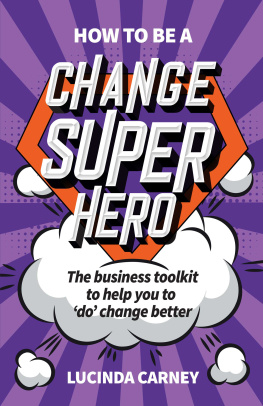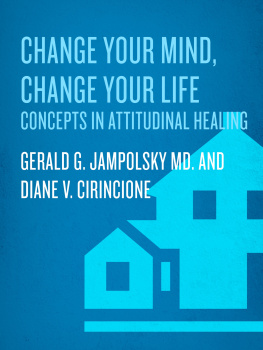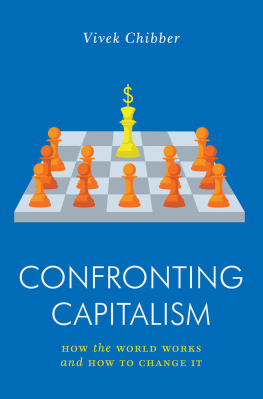Acknowledgments
Thank you, David Ross, for being a believer and tireless champion.
Thank you, Brendan Healy, for our conversations about reinvention.
Thank you, Rachel Letofsky, Nicole Winstanley, Trisha Yeo, Adam Holman, Erin Wunker, Morgan Vanek, Derritt Mason, Shaun Oakey, Jennifer Griffiths, Ariane Laezza, Lilly Wachowski, Elliot Page, Deepa Mehta, Tanya Tagaq, Anna Maria Tremonti, and my forever muse, Shemeena Shraya.
I am also grateful for support from the Alberta Foundation for the Arts, the Canada Council for the Arts, and the Thelma Margaret Horte Memorial Fellowship.
Also by Vivek Shraya
How to Fail as a Popstar
The Subtweet
Death Threat
Im Afraid of Men
The Boy& the Bindi
even this page is white
She of the Mountains
What I LOVE about being QUEER
God Loves Hair
If my adolescent prayers come true, I will die this year. As a devout teenager, I was distressed by my then guru Sai Babas prophecy that he would die when he was ninety-six years old. I tried to reconcile his eventual death by calculating how old I would be when he said he would die. I would be forty. A world without him was not one I wanted to live in, so my paramount prayer was for us to die at the same time. I prayed and prayed and prayed.
An extreme prayer, but also a rational one. My early experiences of homophobia had already sown the seed of suicide. If I didnt have the fortitude to kill myself at sixteen, or the year after, invoking a future death was my backup plan. One way or another, it wasnt safe for me to stick around. One way or another, I was going to get out.
Sathyanarayana Raju was born in a village in India in 1926. In the months leading up to his birth, strange occurrences were said to have taken place, including the sudden appearance of a ball of blue light that impregnated his mother, and the instruments in his parents house playing themselves. As a child, Raju was loving and generous to those in need, despite being poor himself. In school, he fluctuated between model student and rebel. He was perceived by those around him as unusual if not extraordinary.
At the age of fourteen, he declared to his friends and family that he was the human incarnation of god. He was henceforth to be referred to as Sathya Sai Baba. Worship me, he directed. Although some, including his father, doubted this divine revelation, Sathya Sai Baba quickly amassed followers in his village and eventually worldwide.
When my mom was fourteen, Sai Baba was frequently travelling to other cities in India and even visited a neighbourhood home in my moms native Bangalore. She speaks of how accessible he was then, but how she and her siblings were indifferent to him, writing him off as another orange-clad guru. She regrets this now.
When I was fourteen, Sai Baba was not only our household guru; he was like a fifth family member. Large photos of him were displayed in every room of our house, and visiting friends assumed he was a beloved uncle. I was particularly drawn to the rare black-and-white photos from his youth, fascinated by the evidence that god and I had been the same age once. They revealed a tenderness, a prettiness that wasnt apparent in his contemporary photos. I compared his teenage features, his unruly eyebrows and shy smile, to mine. I was obsessed with knowing his biography, which wasnt unlike a queer coming-of-age: the delightful yet odd child who doesnt quite fit in, the act of coming out, the disapproving family, the change of name. Was my devotion to him forged in a belief that I too could recast my differences in a new light?
Around the same time, I encountered the word reinvention in a newspaper review of Madonnas Bedtime Stories. Despite my familiarity with the word invention, the appearance of this new prefix confounded me. I pictured the interior of a clock, its cogs rearranging themselves into a new system. Although the reviewer had used the word to describe Madonnas external changes, I instinctively interpreted the process as internal.
From then on, I studied Madonnas career, primarily through vintage copies of her Rolling Stone cover issues (my first internet purchases), noting how often the word reinvention was used in relation to her. A new Madonna album meant a new sound, a new aesthetic, a new persona, and even new philosophical or religious beliefs. The new Madonna seemed to transcend the old Madonna, implying that at the core she was a boundless being. This intentional remodelling (however appropriative), this perpetual reconstruction of the self, felt sacred to me.
The most common usage of the word reinvent has negative connotations. The phrase reinvent the wheel is generally preceded by the warning dont. This suggests that reinvention is a misuse of time because the wheel is already perfect and cant be improved upon. Reinvention is framed as a wasteful and even foolish action, akin to another saying: If it aint broke, dont fix it. Is being broken the mother of reinvention?
Living through trauma requires a partial death, or many little deaths. Marginalized bodies continually shed parts of ourselves in order to weather the disasters of oppression.
This is one story I can tell myself: That I was forced to change. That I reinvented myself to please or subdue or even mimic my oppressor. I was the proverbial phoenix whose glorified ascension required incineration.
But maybe this story gives fire too much credit. Another story I can tell is that my reinventions predate my trauma and my obsession with Madonna and are rooted in a different mythology. Growing up surrounded by Hindu lore, I was captivated by how gods themselves morphedfrom turtle to monkey to eight-armed warrior goddess to Sai Bababased on the mission at hand. Different desired outcomes, whether defeating a demon or imparting a lesson, demanded different exteriors. As Sai Baba explained, I have come armed with the fullness of the power of the formless God to correct mankind, raise human consciousness, and put people back on the right path of truth, righteousness, peace, and love to divinity. Reinvention here is once again not superficial, but spiritual. Gods outward appearance might change, revealing flashy appendages and weapons, but the motivation is vast and holy.
Even mere humans are born again and again, according to Hinduism, until our cumulative good words, thoughts, and actions outweigh our bad ones. At this point, our individual soul is liberated and merges with the Supreme Soul. Our bodies are mere shells and our soul aches to be free.
This is where homophobia and religion strangely, dangerously overlapped. Both implied that there was something inherently wrong with me, and that reformation could be accessed only through death.
I used to anxiously contemplate the state of my tortured, captive soul at bedtime. Not being able to see or study this vital aspect of my being only heightened my concerns. There was no way to know just how far along I was, in my present life, on my path to liberation. How many bodies had I disposed of, and in how many bodies did I still have to be imprisoned? What bad acts would set me back, and how far? The process of reincarnation seemed like a game, but without the transparency I was accustomed to from Super Nintendono points bar or scorecard. So there was a part of me that didnt want to play at all.
When I was eighteen, I told a friends dad, who was a clairvoyant, how I prayed to die at forty. He responded, Then you will never build anything. You will never commit to anything. His gruff warning scared me, but I didnt understand what he meant.

